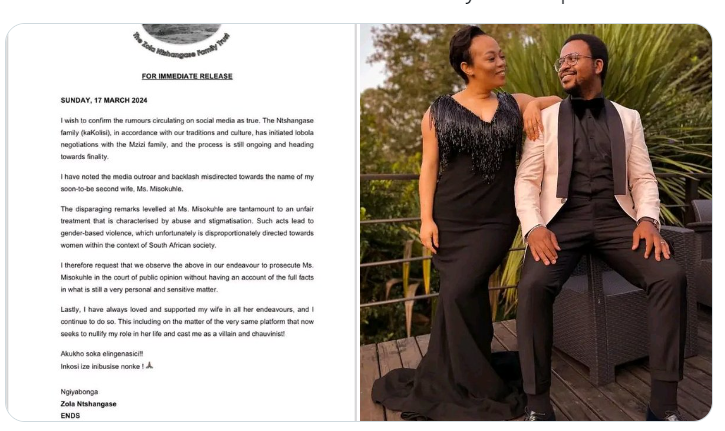Scholarships for Caribbean medical students are invaluable resources that can significantly ease the financial burden of obtaining a medical education. Many organizations and institutions offer scholarships specifically targeting students from this region, making medical careers more accessible. These scholarships vary in eligibility criteria, coverage, and application processes, allowing students to find options that best fit their needs.
The Caribbean boasts a rich history of producing skilled medical professionals who contribute to healthcare worldwide. As the demand for healthcare workers continues to rise, these scholarships play a crucial role in empowering aspiring medical students to fulfill their dreams and serve their communities. Students can leverage these financial aids to focus more on their studies and clinical training.
Navigating the landscape of available scholarships may seem daunting, but several resources exist to help students identify appropriate opportunities. From government-sponsored initiatives to private foundations, knowing where to look can make a significant difference in their educational journey. Understanding the options available can lead students one step closer to a successful career in medicine.

Understanding Caribbean Medical Education
Caribbean medical education represents an important pathway for aspiring physicians. It offers diverse programs and unique admission processes compared to other regions, emphasizing practical experiences.
Overview of Caribbean Medical Schools
Caribbean medical schools provide a range of medical degrees, typically offering a Doctor of Medicine (MD) or Bachelor of Medicine, Bachelor of Surgery (MBBS). Notable institutions include St. George’s University, the American University of the Caribbean, and Ross University School of Medicine.
These schools often target international students and offer flexible admission requirements. Applicants may need a bachelor’s degree, although some programs accept students with less formal education.
The curriculum often combines rigorous academic training with clinical rotations in affiliated hospitals, offering students practical experience. This hands-on approach is essential in preparing graduates for their medical careers.
Accreditation and Recognition
Accreditation of Caribbean medical schools is crucial for ensuring educational quality. Many schools are recognized by organizations such as the Caribbean Accreditation Authority for Education in Medicine and Other Health Professions (CAAM-HP).
Graduates from accredited schools may be eligible to sit for the United States Medical Licensing Examination (USMLE) and pursue residency programs in the United States.
Prospective students should verify the accreditation status of schools they consider. Listing on the World Directory of Medical Schools is another important factor for international recognition.
This recognition impacts residency placements and future career opportunities, making it essential for students to choose accredited institutions.
Eligibility Criteria for Scholarships
Each scholarship for Caribbean medical students has specific eligibility criteria that often include academic performance and financial need assessments. Understanding these factors is essential for prospective applicants.
Academic Requirements
Most scholarships require a minimum GPA, often around 3.0 on a 4.0 scale, to ensure that students maintain a certain standard of academic performance. Some scholarships may focus on specific subjects, such as biology or chemistry, making it vital for applicants to excel in these areas.
Additionally, applicants may need to provide standardized test scores, like the MCAT, where applicable. Letters of recommendation from academic professionals can also enhance an application.
Some programs may be geared towards students currently enrolled in a medical program, while others might be available for those applying for admission. Meeting these academic benchmarks is crucial to being considered for funding.
Financial Need Assessments
Many scholarships incorporate financial need assessments as a significant part of their eligibility criteria. This may involve the completion of forms such as the FAFSA or similar local financial aid applications.
Students often need to provide documentation, including tax returns and income statements, to verify their financial situation. This process helps scholarship committees measure need and prioritize assistance for those facing economic hardships.
Some scholarships may offer tiered funding based on income levels, which can variably impact the amount awarded. Therefore, demonstrating financial need is a vital component of many scholarship applications for Caribbean medical students.
Types of Scholarships Offered
Various scholarships are available for Caribbean medical students. These scholarships typically fall into three categories: merit-based, need-based, and community service scholarships. Each type addresses different criteria and eligibility requirements.
Merit-Based Scholarships
Merit-based scholarships reward academic achievement and outstanding performance. Students must demonstrate strong grades, high test scores, or exceptional skills in relevant fields.
Many universities and organizations offer these scholarships, often as part of their commitment to encouraging excellence in medical education. Applicants may be required to submit essays, recommendations, and evidence of their accomplishments. Examples include the Caribbean Medical Student Scholarship and the Honors Program in Medicine, which provide significant financial support based on excellence.
Need-Based Scholarships
Need-based scholarships assist students facing financial challenges in pursuing their medical education. These awards take into account family income, cost of living, and other financial responsibilities.
Universities, government programs, and private organizations often offer these scholarships to ensure students from all backgrounds can access medical training. Students typically need to provide detailed financial information and may undergo eligibility assessments. Notable examples include the National Health Scholarship Program and various grants from local governments.
Community Service Scholarships
Community service scholarships emphasize the importance of giving back to society. Medical students who have demonstrated a commitment to community service or volunteer work may qualify for these awards.
These scholarships aim to support students who will use their medical education to contribute to underserved communities. Applicants generally need to present evidence of their service work, including hours logged and the nature of their projects. Examples include the Service-Learning Scholarships provided by several Caribbean institutions, which aim to cultivate socially responsible healthcare professionals.
Application Process for Scholarships
Navigating the scholarship application process for Caribbean medical students involves several crucial steps. Each phase is essential to ensure a successful and thorough application.
Preparing Your Application
The first step is gathering all necessary documents. This typically includes transcripts, letters of recommendation, a resume, and a personal statement. Students must ensure that each document meets the scholarship’s specific requirements.
A personal statement is particularly vital for conveying motivation and career aspirations. Applicants should highlight their commitment to medicine and community service.
Some scholarships may require standardized test scores, such as the MCAT. Students should verify the specific criteria outlined by each scholarship to avoid missing critical components of the application.
Submission Deadlines
Each scholarship has its own submission deadlines. These dates vary significantly, so it is crucial for applicants to maintain a calendar with all relevant deadlines noted.
Many scholarships require applications to be submitted at least several months before the start of the academic year. Late submissions are often disqualified, regardless of the circumstances.
Students should also check if materials need to be submitted online or via mail. Familiarity with the preferred submission method is essential to prevent unnecessary delays.
Interviews and Selection Criteria
Some scholarships require interviews as part of the selection process. These interviews help assess the candidate’s qualifications and alignment with the scholarship’s objectives.
Candidates should prepare by researching the scholarship organization and practicing common interview questions.
Selection criteria often include academic performance, leadership skills, and community involvement. Applicants may benefit from showcasing their achievements in these areas while aligning them with the values of the scholarship. It is important for candidates to thoroughly understand what the scholarship organization values to tailor their responses effectively.









